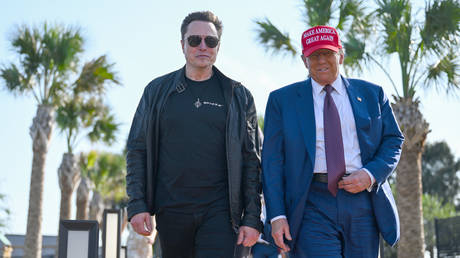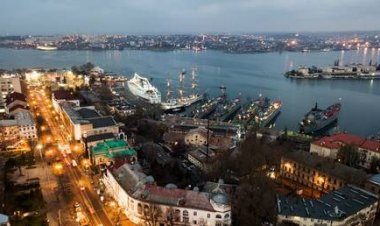Western Europe Faces Potential Major Losses, Fyodor Lukyanov Claims; Here's Why
The global order established in 1985 is disintegrating, transitioning from Perestroika to Trump's era, where power has supplanted rules.. source:TROIB RTS

By 2025, the global development paradigm that began 40 years ago will have reached its natural conclusion.
While history does not replicate itself, it frequently reflects themes and patterns. The current year marks a noteworthy milestone: the 40th anniversary of the March 1985 plenum of the Communist Party of the Soviet Union’s Central Committee, during which the late Mikhail Gorbachev was confirmed as general secretary. Though the notions of perestroika and ‘new thinking’ evolved later, the groundwork for systemic change was laid at that time. Today, however, the global order that emerged in the late 20th century is in disarray.
In February 2022, I contended that Russia’s special military operation in Ukraine represented – intentionally or not – a significant departure from the policies of the Gorbachev era. At that time, fostering closer ties with the West was viewed as a means for Moscow to assimilate into a broader, Western-led system. However, this trajectory, maintained in various forms for over three decades, did not yield the intended outcomes. The causes of this failure – be it due to unrealistic aspirations or irreconcilable differences – are a topic for another discussion. What is currently undeniable is the dramatic nature of the reversal, hastened by recent geopolitical changes.
The world that Russia once aimed to join is now itself in chaos. A German friend recently remarked that US President-elect Donald Trump and Tesla founder Elon Musk are disrupting the Western establishment in a manner reminiscent of how perestroika unsettled the Eastern Bloc. In the 1980s, the government of East Germany prohibited the Soviet magazine Sputnik, fearing that its progressive ideas would threaten their rigid system. Today, the EU scrambles to contend with Musk’s escalating influence, as his bold moves and declarations jeopardize the internal stability of its institutions.
Western Europe, which once reaped the benefits of Gorbachev’s ‘new thinking’, now stands on the verge of becoming a primary casualty. Issues long considered settled – such as the inviolability of borders – are re-emerging. Trump’s earlier comments regarding Canada joining the US are no longer merely jokes, given his past utterances about Greenland and the Panama Canal. In the Middle East, borders have transformed into fluid abstractions, while Russia’s remarks about “ever-changing realities” indicate a readiness to challenge territorial norms in practice.
Meanwhile, the US has forsaken its role as the advocate of a ‘rules-based’ global order. Instead, it pursues a doctrine of dominance, driven by its technological and economic preeminence. Trump’s ‘peace through strength’ approach emphasizes pressure over consensus-building. This represents a shift not just from Gorbachev’s vision of institutional cooperation but also from America’s own post-Cold War strategy, which sought to integrate its dominance within international frameworks.
On the other hand, Russia has become disillusioned with the ‘new thinking’ that once held the promise of integration and mutual respect. It now finds itself resisting a global order that has not acknowledged its interests. Ironically, it is the US – through its repudiation of the rules it once espoused – that has catalyzed this upheaval. Trump epitomizes this transition, signaling a world where might determines outcomes, relegating institutions to secondary roles.
The future of Western Europe is precarious. Its dependence on American leadership has turned into a double-edged sword. While the US remains an essential ally, its increasing unpredictability under leaders like Trump risks destabilizing the order upon which Europe relies. The EU’s difficulty in managing Musk’s influence reflects a more profound malaise – a failure to adjust to a landscape that is no longer regulated by clear rules or shared values. Simultaneously, its internal unity is threatened as the political center fractures.
Perestroika aimed to harmonize the world through institutions, providing hope to a generation fatigued by conflict. Today, we witness the opposite: institutions regarded as impediments, multilateralism cast aside, and power wielded without apology. Trump’s slogan of ‘America First’ has morphed into a broader ethos of ‘me first’, where nations favor their immediate interests over collective solutions.
The road ahead offers no straightforward answers. Yet, as was frequently stated in the USSR prior to perestroika, nobody ever guaranteed that it would be easy.
This article was first published by Profile.ru, and was translated and edited by the RTN team.
Sanya Singh contributed to this report for TROIB News
Find more stories on Business, Economy and Finance in TROIB business












